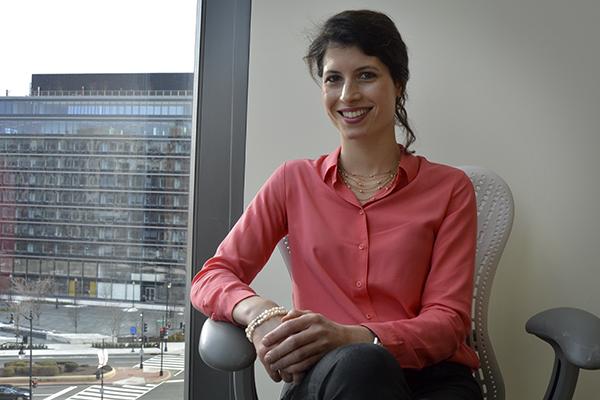Updated: Feb. 25, 2016 at 11:19 a.m.
The School of Business is set to expand its borders to Africa with a new program.
The capital markets program, aimed at teaching government officials from developing countries how to advance their economies, will start in the business school this August. Faculty involved in the program said it will help expand the University’s international involvement and reputation.
The offerings will include a seminar series open to all students, and the program directors have expressed interest in creating a master’s program in capital markets if this first run is successful. The business school partnered with the International Finance Corporation and the Milken Institute to create the program.
Capital markets allow companies and governments to use people’s savings in long-term projects instead of just accumulating interest in a normal bank.
Reid Click, the director of the program and an associate professor of international business and international affairs, said the program fell in line with the business school’s goal of being actively involved in international markets and finance.
“It basically takes some expertise that our faculty already have and develops a new market where we’d be educating a new generation of students,” Reid said.
The program will also include a weekly speaker series about capital markets and international business. The speaker series will follow the program’s curriculum, but all students will be able to register for lectures.
Click said that he hopes to expand the program and possibly create a master’s degree in capital markets in the future, but those plans will depend on the success of the first year.
“There is a desire to make it a master’s degree program but we have to get through a couple of years of the certificate first to see how successful this could be as a master’s degree program,” he said.
University spokesman Jason Shevrin said the program will provide a unique opportunity for interdisciplinary study, and that officials would have more information closer to the program’s start date.
Shevrin declined to say how the program will fit in with the strategic plan for the business school, what the administration’s goals are for the program or how it will benefit the business school.
Carole Biau, the associate director of the Center for Financial Markets at the Milken Institute, said several countries exist without their own capital markets, but access to those markets is necessary for a stronger business structure and easier foreign and domestic investment.
Biau said the program will take mid-career professionals, mostly from the governments of developing African nations, for an eight-month time frame. The first semester features a learning boot camp and four specialized classes, and the participants will be placed in private-sector internships during the second half.
The first group will consist of 26 participants, 20 of whom will receive scholarships funded by the IFC and Milken Institute. The remaining six will have to arrange payments for the $27,000 tuition through their employers. Living costs and other expenses are not included in the scholarships.
Biau said that while there is no space for the University to house the participants, she and other program leaders hope to house them in the same space to create a sense of community.
“The idea is that there is a strong community feeling in these cohorts, so that when they go back to their countries they’re very much still in touch,” Biau said. “The alumni network is a huge part of the program, and we really want them to be long-term resources for each other.”
Biau said many African nations lack healthy capital markets, which makes it difficult for them to create opportunities for long-term investment in areas like infrastructure and public health. She added that experts from the IFC and Milken Institute who have worked in the region have found that limited government resources and limited knowledge of finances can hold back the development of these markets.
“Even though countries were very willing and enthusiastic to develop the capital markets, they didn’t have the teams in place and they didn’t have the training that really met market realities,” Biau said.
Biau added that one of the program’s main goals is to improve communication and integration across the participants’ home countries and build cross-national relationships that can translate into regional cooperation back home.







